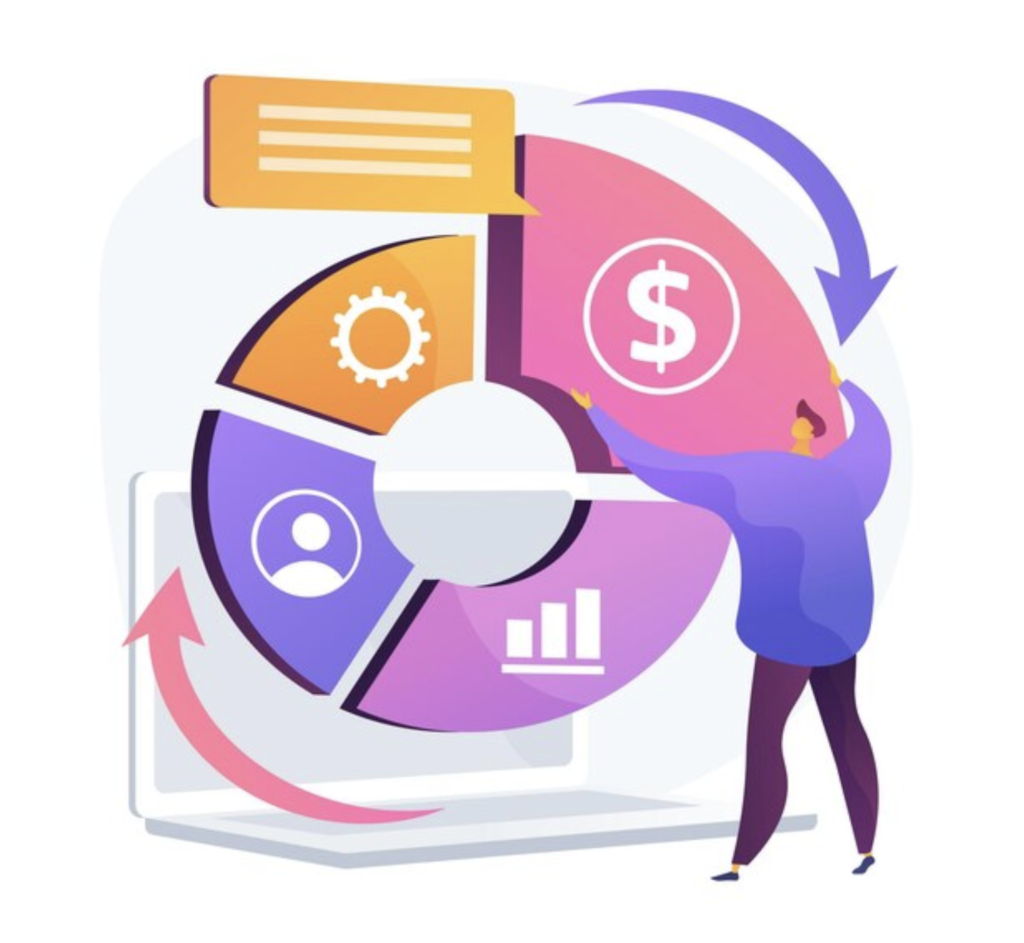In the fast-paced world of startups, mastering the art of sales isn’t just important—it’s a matter of survival.
Let’s face it, the landscape is littered with startups that couldn’t make the cut, and a whopping 90% of them bite the dust primarily because they can’t drum up enough market demand for what they’re selling.
This stat isn’t meant to scare you; it’s a wake-up call to the critical need for pinpointing your ideal customers and crafting buyer personas that resonate. That’s your bedrock for nailing sales in the startup arena.
But there’s more to the story. Leveraging the right tech tools and keeping a hawk’s eye on key performance indicators—think customer acquisition cost, monthly recurring revenue, and churn rate—can unlock game-changing insights to fine-tune your sales approach.
Sure, navigating sales in the founder sales startup world is fraught with challenges, from ever-shifting processes to evolving roles, but that’s part of the thrill. Are you prepared to do what’s necessary to find success?
Embarking on a sales career within a startup isn’t just a job; it’s an adventure packed with chances for personal and professional growth.
If you want to know everything my team and I use to get founders their first million in sales as quickly as possible, then pay attention. This article isn’t just another how-to guide; it’s your roadmap to thriving in the exhilarating world of startup sales, packed with insider tips to help you excel in this dynamic field.
Table of Contents
- Understanding the Startup Sales Process and Landscape: Your Guide to Startup Sales
- The Cornerstone For Startup Founders: Sales in Startup Ecosystem
- Your Product Doesn’t Have to Be Perfect in Order to Start Selling
- Targeting the Right Audience for Startup Sales Teams
- Crafting Killer Buyer Personas: The Secret Weapon in Your Startup Sales Arsenal
- Building a Strategic Tech Stack for Startup Sales Success
- Cracking the Code: Must-Track Metrics for Startup Sales Success
- Conquering Startup Sales Challenges: Strategy, Team, and Growth
- Riding the Rollercoaster: The Thrill of Startup Sales
- Mastering the Art of Startup Sales: Strategy, Tools, and Customer Success
- Mastering the Startup Sales Process
- Conclusion

Key Takeaways
- Identifying a lucrative target market and carving out a viable space within the competitive landscape is crucial for startups in the sales process.
- Creating detailed buyer personas through research, surveys, and interviews helps tailor the sales process and craft specific messaging.
- Building a well-constructed tech stack with relevant and scalable solutions is essential for successful sales efforts.
- Understanding startup sales metrics, such as burn rate, customer acquisition cost, monthly recurring revenue, customer lifetime value, and churn rate, is important in measuring success and making informed decisions.
Are you a founder struggling to close your first million in revenue? My name is Darren, and I am the CEO of Rampd. My team and I have a proven framework that breaks down the sales process into manageable steps, giving you the confidence to guide prospects through a predictable buying journey. My approach has helped numerous founders grow their revenue by 300% yearly. Don’t miss out on this opportunity to transform your sales process. Book a call with me, Darren, today and start your journey towards your first million.

Understanding the Startup Sales Process and Landscape: Your Guide to Startup Sales
Diving into the world of startup sales is like navigating a wild, uncharted territory. For every startup founder and their sales team, the journey is packed with its own set of hurdles—tight budgets, ever-evolving sales strategies, and roles that shift quicker than sand dunes. This whirlwind of change doesn’t just test your resilience; it demands a level of adaptability and flexibility that’s unparalleled. Yet, for those willing to ride the waves of uncertainty, the rewards aren’t just significant; they’re transformative, offering unparalleled opportunities for growth and a deep dive into the sales process.
Crafting a bulletproof startup sales strategy is your compass in this dynamic landscape. It’s about aligning every sales rep and marketing effort with the broader vision of your startup, ensuring that your sales and marketing teams aren’t just moving, but moving in the right direction. From sketching out detailed buyer personas to guide sales and marketing efforts to pinpointing your niche in the competitive landscape and equipping your sales force with the best CRM and sales software, every step is about gaining an edge in b2b sales or direct to consumer channels.
But it’s not just about strategy; it’s also about mastering the numbers game. Burn rate, customer acquisition cost (CAC), monthly recurring revenue (MRR), customer lifetime value (CLV), and churn rate aren’t just metrics; they’re the pulse of your startup’s financial health and the effectiveness of your sales efforts that your sales teams must burn into their memories. For sales leaders and the head of sales, these numbers are the crystal ball that can predict the future success of your enterprise sales, offering a clear view of where you’re headed and what needs tweaking in your sales pipeline or sales process.
In this high-stakes arena, every startup, from early-stage ventures eyeing their first sales to established players scaling their customer base, needs to keep a close eye on these indicators. They’re not just numbers; they’re the roadmap to navigating the tempestuous seas of startup sales, guiding your ship to the haven of successful startup status.
The Cornerstone For Startup Founders: Sales in Startup Ecosystem
Jump headfirst into the startup founder’s odyssey, and it won’t take long to realize that sales aren’t just important—they’re the rocket fuel propelling your startup to its dream destination.
Sure, nailing your startup product or service is crucial, but getting a grip on the sales game? That’s what blasts you from the drawing board to market fame and financial stability at warp speed.
Here, we’re diving deep into why sales are the beating heart for startup founders, lighting up the vast benefits that stretch way beyond just cash flow.
For the uninitiated, it might seem like all about the product. Yet, for those in the trenches, it’s crystal clear: selling is everything. It’s not merely about clinching deals or swelling the customer base; it’s the cornerstone of building enduring customer relationships, sizing up against the competition, and securing your spot in the market melee.
Mastering sales is the ultimate proof that your startup resonates with your target audience, a crucial lever for scaling your operations and securing the future of your business. Sales are more than just the exchange of goods; they’re the scaffolding of a booming startup ecosystem, nurturing customer loyalty, sparking referrals, and steering your startup toward a successful sales saga.
For every startup warrior out there, crafting a slick sales strategy is non-negotiable. It’s about zeroing in on those ideal customers and locking down deals left, right, and center. Remember, your startup’s destiny isn’t just tied to what you’re selling—it’s all in the how.
Now, let’s get down to brass tacks with a bird’s-eye view of the sales essentials every founder needs to master:
Sales are a Financial Lifeline
Revenue Generation: Think of sales as your startup’s artery, pumping the vital funds to keep the lights on, fuel growth, and catch the eye of savvy investors.
Product-Market Fit is Key
Sales Offer a Customer Feedback Loop: Sales isn’t just talk; it’s a goldmine of insights straight from your market, guiding your product to be the glove that fits perfectly.
Sales Give Market Validation: Each sale is a vote of confidence in your product, a clear signal of market demand and business model soundness.
Customer Acquisition and Retention
Sales Help Build the Ideal Customer Profile (ICP): Sales conversations are a treasure trove, helping you sketch the profile of your dream customer.
Sales Build Relationships: This journey is all about forging lasting connections, turning customers into loyal fans, and setting the stage for referrals.
Learning and Adaptability
Sales are a Skill Set: For founders, sales is the ultimate crucible, sharpening your negotiation, communication, and problem-solving skills.
Sales Tell Market Dynamics: Stay ahead of the curve by keeping a finger on the pulse of market trends, competition, and customer desires.
Strategic Clarity
Sales Give You Business Direction: Sales results don’t lie; they offer a clear-cut view of whether your strategies are hitting the mark or missing the boat.
Investor Attraction
Sales Provide Financial Traction: Nothing speaks louder to investors than solid sales figures, showcasing not just market validation but a path to profitability.
Embracing sales is like holding the compass to the market, a direct line to insights that shape your product, strategy, and the core value your startup brings to the table. As you navigate the entrepreneurial seas, making sales a top priority is key to docking at the island of success.

Your Product Doesn’t Have to Be Perfect in Order to Start Selling
Kicking off the sales journey as a startup founder can feel like you’re stepping into a maze—especially when your product is still finding its feet.
But don’t sweat it; there are plenty of smart moves to start raking in revenue, connecting with customers, and scooping up valuable market insights right from the get-go.
What you’re about to dive into is a clear-cut roadmap for finding your way through those early sales stages. We’re talking about a step-by-step guide that’ll have you sailing through the sales process like a pro, even when your product’s still getting polished.
1. Kickstart the Sales Engine By Leveraging Your Expertise
Consultative Sales Approach: Start by offering not just a product but your expertise. Think of it as consulting; it’s a way to open revenue streams while laying down a trusty foundation with your target crowd. This isn’t just about making quick sales; it’s about building lasting relationships and establishing credibility.
Hybrid Sales Model: As your product starts to find its feet, mix in some proprietary tools or early versions of what you’re building. Pair these with your expertise for a combo that boosts value for your customers. This blend helps transition your involvement from heavily hands-on to more scalable solutions.
2. Amplifying Your Sales Strategy
Selling the Vision: When your product hits a key development milestone, it’s time to pivot toward selling the big picture. This vision-centric phase is your launchpad for scaling up, moving towards models that best fit your product’s nature and customer expectations.
Validation Through Sales: Every early sale is a gold star for market validation. It’s proof positive that there’s a demand for what you’re cooking up, edging you closer to that sweet spot of product-market fit.
3. Tuning Into Your Customers
Feedback Integration: Use the goldmine of feedback from these initial sales to fine-tune your product. It’s about creating something that not only meets but exceeds market needs. This iterative refining process is key to developing a product that truly resonates.
4. Crafting Your Sales Pathway
Progressive Sales Strategies: Draw up a sales roadmap that clearly outlines how you’ll move from one phase to the next. It’s about having a clear trajectory that syncs up with both your product’s evolution and market readiness.
Educational Sales Approach: Leverage an educational stance to shed light on what your product brings to the table. Informing and engaging with potential customers in this way builds a foundation of trust and underscores the value you’re offering.
5. Measuring and Evolving
Performance Metrics: Nail down the key metrics to track your sales strategy’s performance. These insights are crucial for tweaking and refining your approach based on real-world feedback and sales results.
Launching into sales with this structured game plan doesn’t just clear the fog; it sets you up for building meaningful connections, validating your market fit, and strategically scaling your sales efforts as your product grows. It’s all about relationship building, market validation, and smart scaling—key pillars for any startup poised for success.

Targeting the Right Audience for Startup Sales Teams
Identifying a niche market is essential to targeting the right audience for sales in a startup effectively. By focusing on a specific market segment, startups can tailor their marketing efforts and sales pipeline to attract potential customers who are more likely to be interested in their product or service. This targeted approach allows startups to concentrate their resources and maximize the impact of their lead-generation activities.
- Understanding the target market: Startups need to conduct thorough research and analysis to identify their ideal target audience. This involves studying demographics, psychographics, and other relevant factors that define their customer base.
- Tailoring marketing efforts: Once the target audience has been identified, startups can craft personalized marketing messages that resonate with potential customers. By understanding the needs and preferences of their target market, startups can create compelling content and promotions that capture attention and drive engagement.
- Building customer relationships: By focusing on a niche market, startups can build strong customer relationships. This enables them to understand customer needs better, provide exceptional customer service, and develop products or services that meet those needs effectively.
Ready to take your founder-led sales business to the next level? Rampd’s unique approach to sales is not just about teaching and consulting; it’s about delivering tangible results tailored to your company. Our clients have seen dramatic revenue increases, with some even crossing the $1M mark. If you’re ready to streamline your sales process and achieve predictable revenue, schedule a call with me, Darren, Rampd’s CEO. I’ll help you establish Product-Market Fit and get you on your way to closing your first million in revenue.

Crafting Killer Buyer Personas: The Secret Weapon in Your Startup Sales Arsenal
Let’s get down to brass tacks: creating killer buyer personas isn’t just busywork; it’s the bedrock of any sales strategy worth its salt. This isn’t about making wild guesses or painting in broad strokes. It’s about diving deep into the psyche of your potential customers, understanding their every whim, need, and pain point with the precision of a brain surgeon.
Here’s how you can turn this intel into your competitive edge:
Step 1: Gather the Intel
Start with a detective’s mindset. We’re talking surveys, in-depth interviews, and a deep dive into your contact data. You want to know not just who your customers are but what makes them tick. This is where you collect the puzzle pieces.
Step 2: Spot the Patterns
Next up, channel your inner Sherlock Holmes. Analyze the data you’ve collected to spot trends and patterns. What common challenges are your customers facing? What goals are they gunning for? This is about connecting the dots to get a clear picture of who you’re selling to.
Step 3: Segment and Conquer
Now, break down your audience into segments based on their shared traits. This isn’t just about demographics—it’s about getting into their heads. By understanding the distinct groups within your target market, sales teams can tailor their messaging to speak directly to their souls.
Step 4: Personalize Your Play
Armed with your buyer personas, it’s time to customize your sales approach. We’re talking personalized messaging that hits home, sales tactics that address specific needs, and building relationships that feel more like friendships. This is how you make every prospect feel like your product was made just for them.
Step 5: Qualify Like a Boss
Finally, use your buyer personas to sharpen your lead qualification process. Align your criteria with the insights you’ve unearthed, focusing your firepower on the prospects most likely to turn into your most loyal customers. This isn’t just about filtering leads; it’s about supercharging your efficiency and skyrocketing your sales effectiveness.
Bottom line: Crafting detailed buyer personas is non-negotiable for startup sales success. It’s the secret sauce that lets you hit the bullseye with every pitch, build unshakeable customer relationships, and keep your sales machine running like a dream. So, roll up your sleeves and get to know your customers like they’re your best friends. Your bottom line will thank you.

Building a Strategic Tech Stack for Startup Sales Success
A well-constructed tech stack is crucial for achieving success in the sales efforts of a startup. Building a strategic tech stack for startup sales success involves carefully selecting and integrating various software and tools to optimize the sales process. Here are three key reasons why building a strategic tech stack is essential:
- Efficiency: A strategic tech stack streamlines and automates repetitive tasks, allowing sales teams to focus on high-value activities such as building relationships with prospects and closing deals. By eliminating manual work and improving efficiency, startups can maximize their productivity and achieve better results.
- Scalability: As startups grow, their sales processes need to scale accordingly. A well-designed tech stack provides the flexibility to adapt to changing needs and accommodate increased demand without disrupting operations. This scalability ensures that startups can handle an expanding customer base while maintaining consistent performance.
- Data-driven decision-making: An integrated tech stack allows startups to collect and analyze data throughout the entire sales process, providing valuable insights into customer behavior, pipeline management, and overall performance. By leveraging these insights, startups can make informed decisions, identify areas for improvement, and fine-tune their strategies for maximum effectiveness.

Cracking the Code: Must-Track Metrics for Startup Sales Success
In the high-octane world of founder-led sales, flying blind just won’t cut it. To truly nail your sales strategy and pump up those revenue numbers, you’ve got to be all over your metrics like a pro. These aren’t just numbers; they’re the pulse of your sales operation, the secret sauce to scaling up and smashing those targets. Here’s the lowdown on the key metrics every startup gunslinger should be tracking:
- Customer Acquisition Cost (CAC): This is the cash you’re shelling out to snag each new customer. Why keep an eye on it? Because blowing more dough to get a customer than they’re bringing in is like running your startup off a cliff.
- Monthly Recurring Revenue (MRR): The bread and butter of your cash flow, MRR is all about the predictable income you’re raking in every month. It’s crucial because it gives you a clear snapshot of your financial health and growth trajectory.
- Customer Lifetime Value (CLV): This gem tells you the total revenue you can expect from a customer over their lifespan. The higher the CLV compared to CAC, the more you’re winning. It’s a powerhouse metric for gauging the long-term viability of your sales strategy.
- Churn Rate: The dreaded churn—how quickly you’re losing customers. It’s the canary in the coal mine for customer satisfaction and product-market fit. Keeping churn low is your ticket to sustainable growth.
And let’s not forget about the journey of your leads through the sales funnel. Tracking this journey shines a spotlight on where potential deals are hitting a snag or dropping off entirely, letting you fine-tune your approach and keep those leads moving toward a close.
By keeping a tight ship on these metrics and analyzing the bejesus out of them, you’re not just making guesses; you’re making strategic moves based on hard data. This is how you refine your pitch, perfect your sales process, and ensure your startup isn’t just spinning its wheels but actually gaining ground and growing revenue.
So, let’s get down to brass tacks: Regularly dive into these metrics, decipher what they’re telling you, and be ready to pivot faster than a startup changing its office coffee brand. This is how you stay lean, mean, and ready to conquer the ever-shifting sands of the startup sales battlefield.

Conquering Startup Sales Challenges: Strategy, Team, and Growth
Tackling the beast that is startup sales isn’t for the faint of heart. It’s a dynamic battlefield, demanding not just the ability to roll with the punches but to throw a few knockout ones yourself. For those brave souls in the sales and marketing trenches of the startup world, here’s the lowdown on dominating the game.
Locking Down Your Sales Strategy
First up, you gotta have a plan—a killer startup sales strategy that’s as sharp as it is flexible. This means diving deep to understand your battleground (aka your target market), pinpointing what makes your product the secret weapon (your unique selling propositions), and delivering a pitch so compelling it turns prospects into believers on the spot.
Assembling Your Sales Squad
Next, you’re only as strong as your crew. Building a powerhouse sales team is non-negotiable. You need warriors—sales leaders and reps who are not just talented in their startup sales jobs but hungry, adaptable, and ready to learn at warp speed. But it’s not all about the hustle; creating a vibe of collaboration and backing it up with continuous training and support is what turns a good team into a legend.
Mastering the Art of Lead Generation
And let’s not forget the lifeblood of startup sales: lead generation. This is where the rubber meets the road. You and your team need to be out there, making waves with cold calls, email blasts, hitting up networking events, and slaying it on social media. But it’s more than just casting a wide net—it’s about forging alliances and nurturing relationships that transform leads into deals.
Navigating the startup sales jungle is no walk in the park. It’s a high-stakes, high-reward game that demands your A-game at every turn. But for those ready to embrace the challenge, the rewards aren’t just in the wins or the numbers—it’s in the thrill of the chase and the glory of building something from the ground up. Ready to take the leap? Your startup sales odyssey starts now.

Riding the Rollercoaster: The Thrill of Startup Sales
In the whirlwind world of startup sales, getting a kick out of the ups and downs is key. It’s a wild ride, full of twists and turns, demanding not just the guts to hang on but the agility to dance through the chaos. This deep dive is all about why getting jazzed about the rollercoaster ride of startup sales is non-negotiable.
Startup territory is where the only constant is change itself. Sales strategies, team roles, training a salesperson to be their best, and even the product lineup are in perpetual motion, always on the tweak-and-tune track to nail the market fit. Sales warriors in this arena face a barrage of shifts—from how they pitch to the very goals they chase. Sure, charting a course through this maze of maybes sounds daunting, but man, does it pump the adrenaline.
Welcoming the wild side of startup sales equips you with a Swiss Army mindset, ready to flip strategies at the flick of a market trend. It’s this flexibility that not only lets you surf the waves of uncertainty but also carves out incredible chances for personal mastery and smarts.
And let’s not skim over the thrill of potential glory. Plunging into startup sales puts you in the driver’s seat, directly steering the venture’s victory lap.
The stakes? Sky-high. But the rewards? They’re in the stratosphere, baby.
So, if you’re drawn to the fast lane where every day is a new puzzle, where your moves matter, and the payoff is as sweet as it is earned, then the volatile, vibrant world of startup sales is where you want to be. It’s not just a job; it’s the ultimate adventure in business.

Mastering the Art of Startup Sales: Strategy, Tools, and Customer Success
Navigating the high-stakes world of startup sales is a thrill ride—where the rewards scale with the leaps of faith you take. For those in the thick of startup sales, fulfillment isn’t just a buzzword; it’s the real deal, stemming from a mix of key ingredients. Let’s break down the triple threat that amps up satisfaction and spells out success in startup sales:
- Crafting the Killer Sales Strategy: It’s all about laying down a game plan that sets your sales team up to knock deals out of the park and reel in new customers. By dialing in a strategy that’s as sharp as it is savvy, you’re setting the stage to hit those targets and crank up your sales numbers. Get creative, lean on deep market insights, and stay nimble to customer vibes—that’s your blueprint for a strategy that wins.
- The Right Tools in Your Arsenal: Success in the startup sales arena demands more than just hustle; you need the right gear. We’re talking about arming yourself with top-notch CRM systems, automation that cuts through the busywork, and conversational intelligence that keeps you in tune with your prospects. These are the tools that streamline your day-to-day, making lead management a breeze, communications slick, and customer interactions tracked to a T.
- The Endgame: Happy Customers: At the end of the day, the heart of startup sales beats for one thing—making customers so stoked about your product that they can’t help but come back for more and shout your praises from the rooftops. It’s about forging solid bonds through standout service and tailored experiences that turn customers into loyal fans and vocal advocates.
There you have it—the trifecta of fulfillment in the world of startup sales. It’s a blend of strategy, tools, and, ultimately, the joy of seeing customers turned ambassadors. That’s what makes the grind worth it, and that’s where the real magic happens.

Mastering the Startup Sales Process
Understanding and mastering the key sales process elements is essential to navigating the complex landscape of startup sales successfully. It is also one of the best practices to help manage customer relationships.
The startup sales process encompasses various stages, including prospecting, qualifying leads, quoting, contracting, and closing deals. Each stage requires careful planning and execution to ensure success. Startups should track key metrics, automate data collection, and actively participate in sales to drive efficiency and improve outcomes.
Mastering the startup sales process involves developing a customized framework that aligns with the company’s unique needs and objectives. This includes creating buyer personas to tailor messaging and targeting specific niche markets for maximum impact. Additionally, implementing a strategic tech stack that supports sales teams is crucial for seamless operations.
Putting It All Together
If you want to understand why prospects choose to buy from you and why opportunities are lost, it is absolutely essential that you flesh out a clearly defined sales process. It will provide you with valuable insights into your ICP’s behavior, preferences, and buying motivation.
The problem I see frequently is many founder led sales teams are winging it. They have no sales process, so naturally, they have no idea why they are losing deals. Everything is rooted in speculation.
If you are not measuring each step of the process I can almost guarantee you your CAC and burn rate will be super high.
What gets measured gets managed.
For simplicity purposes, I’m going to use traditional SaaS sales stages that can be optimized to reflect your sales process if this isn’t 100% applicable. What I cover will be relevant for 85% of startups.
There are six steps to a sales process and exit criteria that must be met in order for them to progress in the stages.
- Discovery
- Demo
- Scoping
- POC
- Negotiation
- Close
Let’s take a look at the criteria that need to be met in order to move them forward in the sales process.
Discovery
- The Buyer Status is: Are they interested in finding a solution to whatever it is you solve for?
- The Exit Criteria For You is to identify BANT and agree there is alignment and an initial fit.
- The Exit Criteria For The Buyer: They have identified a problem we can solve, and they have expressed a willingness to take action. A champion who can drive the deal forward by engaging other stakeholders.
- If this information has not been identified, they are not a qualified opportunity for revenue.
Demo
- The Buyer Status is: How can your product solve the buyer’s specific use cases/needs?
- The Exit Criteria For You: Clearly have demonstrated how your product can solve the use cases conveyed on the discovery in a quick, efficient and economic way.
- The Exit Criteria For The Buyer: They’ve agreed your product can deliver and are willing to move to the next stage, which is the scoping call.
Scoping
- The Buyer Status is: Can your product deliver on expectation?
- The Exit Criteria For You: Understand the success criteria they’re looking to validate on the POC and feel 97% confident that you can deliver.
- The Exit Criteria For The Buyer: They are prepared to move forward on the POC.
POC
- The Buyer Status is: Was the tech validated during the POC?
- The Exit Criteria For You: A POC recap call was held to identify any issues that came up during the pilot.
- The Exit Criteria For The Buyer: They have expressed their questions and concerns and are prepared to move forward with negotiations to close.
Negotiation
- The Buyer Status is: Are they prepared to buy?
- The Exit Criteria For You: Conveying final pricing and negotiation. Negotiations, if they occur, will happen in 2 areas: Pricing and length of agreement.
- The Exit Criteria For The Buyer: They gave you the verbal green light, and contracts are sent.
Close
- The Buyer Status is: The contract has been received.
- The Exit Criteria For You: Addressing any contract concerns and receiving the signed agreement back. Scheduling the go-live date.
- The Exit Criteria For The Buyer: They are a new customer. Closed and won!
If you can follow this sales process, you are ahead of 95% of the founders out there.

Conclusion
You’ve just taken a deep dive into the high-octane world of a sales startup, unpacking the challenges and scoring big on the rewards. We’ve laid out the playbook—spotlighting the power of zeroing in on niche markets, crafting spot-on buyer personas, and leveraging a killer tech stack to make sure your sales strategy hits the mark every time.
But here’s the thing: knowing the field and playing to win are two different games. We’ve also served up the crucial metrics that keep your sales engine running smooth and tackled the head-scratchers unique to the startup sales arena. This isn’t just an article; it’s your secret weapon in mastering the fast-paced, ever-evolving startup sales landscape.
Now, here’s where Rampd steps in to turbocharge your journey:
- Scale Up: Ready to kick sales development into high gear? We’ve got you.
- Call Coaching: Let’s fine-tune your pitch to perfection.
- Founder Consulting with Darren, Rampd’s CEO: Direct from the trenches advice to navigate the sales maze.
Whether you’re patching up your sales process or gearing up for major growth, Darren’s on hand to guide you through. These consulting sessions are all about scaling heights and keeping you on your toes.
If you’re set to skyrocket your sales and chase down that first million in revenue, Darren and the team at Rampd are your co-pilots. Let’s lock in that product-market fit together. Hit me up (Darren) today, and let’s start closing deals like there’s no tomorrow. Your next big sales breakthrough is just a call away.

